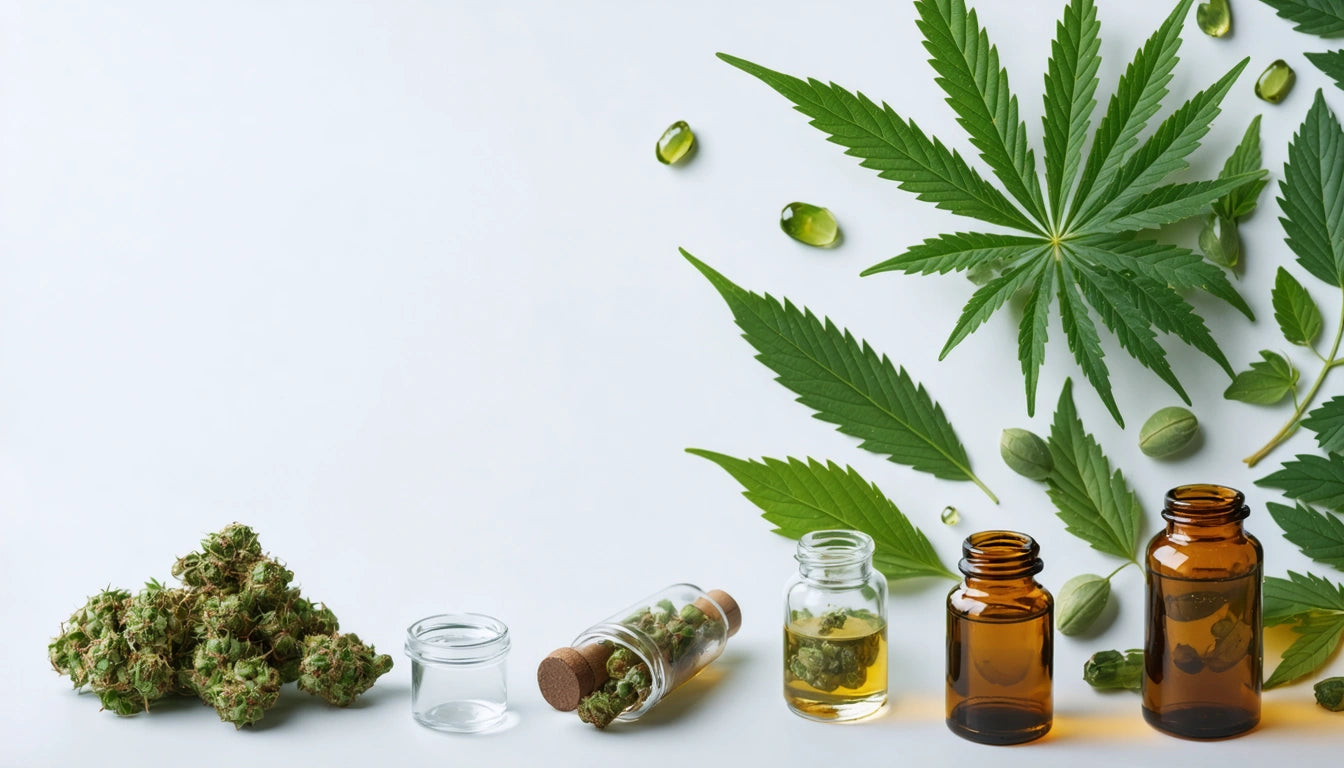Table of Contents
Understanding the Differences Between THC Variants: 9-Panel, Delta-9, and More
The cannabis industry continues to evolve with increasingly specific terminology around cannabinoids. Terms like "9 panel no THC," "D9 THC vs THC," and "THC9" often confuse both consumers and industry professionals. This comprehensive guide clarifies these distinctions to help you navigate the complex world of cannabis compounds.
THC Basics: Understanding the Foundation
Tetrahydrocannabinol (THC) is the primary psychoactive compound in cannabis. However, THC isn't a single molecule but rather a family of related compounds. The most abundant and well-known form is Delta-9-THC, often simply called "THC" in common usage.
When people discuss THC without specifiers, they're typically referring to Delta-9-THC. This creates confusion when comparing terms like "D9 THC vs THC" since they often reference the same compound. The distinction becomes important when discussing specific variants or testing methodologies.
The Cannabinoid Family
THC belongs to a larger family of compounds called cannabinoids. Understanding the differences between THCA, THC, and other cannabinoids is essential for grasping how these compounds interact with the human body and how they're measured in testing.
Delta-9 THC Explained: The Standard Measure
Delta-9-THC (also written as Δ9-THC, D9-THC, or THC9) is the primary psychoactive component in cannabis. The "9" refers to the position of a double bond in the chemical structure. This specific arrangement gives Delta-9 its characteristic effects.
When comparing "D9 THC vs THC" or wondering "what is 9 THC," it's important to understand that these terms generally refer to the same compound. The "9" or "D9" specification simply provides scientific precision by identifying the exact molecular structure.
Legal definitions often center around Delta-9-THC content. For example, hemp is legally defined as cannabis containing less than 0.3% Delta-9-THC on a dry weight basis, making proper identification and testing crucial for compliance.
What Does 9 Panel No THC Mean: Testing and Compliance
The term "9 panel" refers to a drug test that screens for nine different substances. When you see "9 panel no THC," it indicates that a comprehensive drug test has been conducted and no THC was detected across the panel of tests.
This terminology is particularly important for:
- Employers conducting workplace drug testing
- Athletes subject to performance-enhancing drug screens
- Probation or legal compliance testing
- Medical patients who need to avoid THC for various reasons
For cannabis product manufacturers, understanding these testing protocols is crucial. Proper packaging that clearly communicates cannabinoid content helps consumers make informed choices. Many producers use specialized packaging solutions for different cannabis quantities that include clear labeling about cannabinoid content and testing results.
Comparing THC Variants: D9 THC vs THC and Beyond
Beyond the standard Delta-9-THC, several other THC variants exist with different effects and legal statuses:
Delta-8-THC
When comparing "THC9 vs THC8," the key difference lies in potency and effects. Delta-8-THC produces milder psychoactive effects than Delta-9 and exists in a complex legal gray area in many jurisdictions.
Delta-10-THC
Another variant with reportedly more stimulating effects than Delta-9, but typically less potent. Its legal status varies by location.
THC-A
Tetrahydrocannabinolic acid is the precursor to Delta-9-THC. Understanding the differences between THC, THC-A, and THC-B helps clarify how these compounds transform through decarboxylation when cannabis is heated.
THC-P
A relatively newly discovered cannabinoid that some research suggests may be significantly more potent than Delta-9-THC. Understanding THC-P potency differences is important for both consumers and producers.
These distinctions matter for legal compliance, product development, and consumer education. The specific variant can impact everything from effects and dosing to legal status and testing requirements.
Potency Considerations: Higher Terps or THC?
The cannabis industry increasingly recognizes that THC percentage alone doesn't determine product quality or effects. The debate between "higher terps or THC" highlights the importance of terpenes, aromatic compounds that contribute to cannabis effects through the "entourage effect."
Terpenes can modulate THC effects, potentially enhancing therapeutic benefits while mitigating unwanted effects. This complex interaction means that a product with moderate THC but rich terpene profile might provide better results than a high-THC product with minimal terpenes.
Understanding THC potency across different variants requires considering both cannabinoid content and terpene profiles. This holistic approach provides a more accurate picture of potential effects than focusing solely on THC percentage.
Future Developments in THC Research and Regulation
The cannabis industry continues to evolve rapidly, with ongoing discoveries about cannabinoids and their effects. Research into minor cannabinoids and their interactions promises to expand our understanding of cannabis beyond simple THC measurements.
Regulatory frameworks are similarly evolving, with increasing sophistication in how different THC variants are classified and controlled. Future developments may include:
- More nuanced testing requirements that account for multiple cannabinoids
- Standardized terminology to reduce confusion between variants
- Clearer regulations regarding emerging cannabinoids
- Greater emphasis on comprehensive profiles rather than single-compound measurements
For industry professionals, staying informed about these developments is crucial for compliance and product development. For consumers, understanding the distinctions between THC variants helps make more informed choices about cannabis products.
As our knowledge of cannabis chemistry expands, so too will the precision of our terminology and testing. The confusion around terms like "what does 9 panel no THC mean" or "D9 THC vs THC" will likely diminish as standardization improves across the industry.











Leave a comment
All comments are moderated before being published.
This site is protected by hCaptcha and the hCaptcha Privacy Policy and Terms of Service apply.